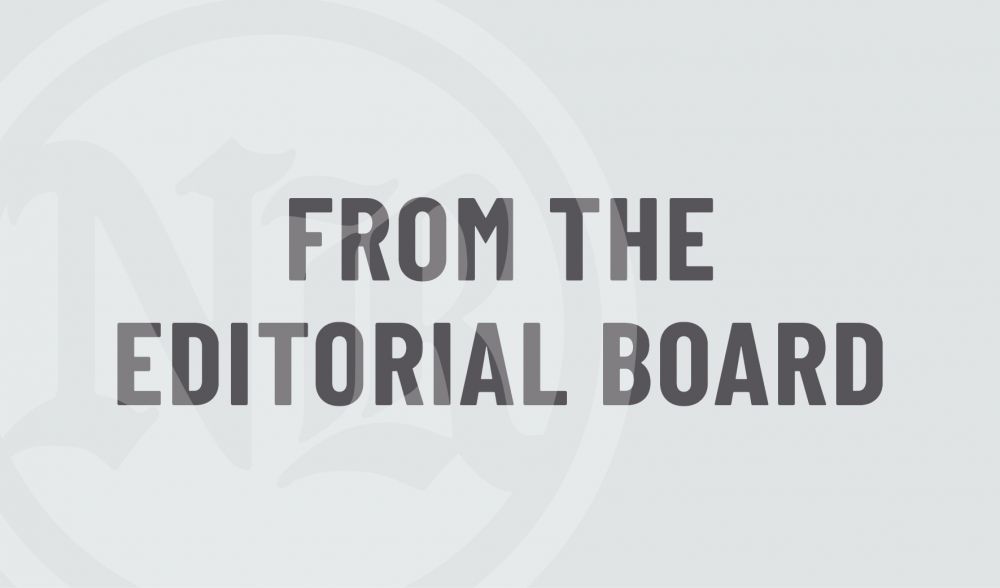Native Americans worthier than wayward 15th century mariner

Christopher Columbus, anglicized version of the Latin Christophorus Columbus and Italian Cristoforo Colombo, never set foot in North America. He landed on Caribbean islands on all four of his voyages of exploration in the late 1400s and early 1500s, though he did also explore some of the South and Central American coast in 1498 and 1502.
What’s more, he set out to discover a new trade route to the East Indies, in the Eastern Hemisphere rather than the Western, and insisted to his dying day that he actually had. That’s why the Americas ended up being named after the explorer who set the record straight, fellow Italian Amerigo Vespucci.
For both Columbus and the Spanish Crown, which financed his ventures, the interest was strictly commercial. They were seeking an alternative Asian trade route after Constantinople fell to the Ottoman Turks in 1451, shutting off European access to the Silk Road.
And for that matter, could lands that had been continuously inhabited for tens of thousands of years, and visited by Viking explorers 700 years earlier, have actually been “discovered” when the first European arrived? Only in the eyes of the myopically Eurocentric, it would seem.
What the landing marked for Natives, throughout the Americas, was colonization, displacement, slaughter, enslavement and pandemic. Of an estimated 55 million Natives, records suggest more than 90% fell victim to disease, famine or force of arms within a century.
From the European perspective, Columbus saw one potential benefit almost immediately.
He told his patrons the Natives were so docile he could subdue the whole lot with 50 armed men. He said they would provide a fine source of servants back home, and to prove his point, took half a dozen captive for the return trip.
When Columbus was later rewarded with the governorship of Hispaniola, an island now shared by Haiti and the Dominican Republic, he ruled with such brutality the crown had him deposed, arrested, returned in chains and clapped in jail — something you will rarely if ever learn in an American classroom.
Despite professing pious Christianity, he and his men established a brutal slave trade, raped and pillaged widely, and inflicted beatings, torture and dismemberment with little provocation. So he fell glaringly short on humanity, even by the standards of his time.
We didn’t come to celebrate a formal federal holiday in honor of Columbus until 1971, almost 500 years later. The movement to instead recognize Indigenous Peoples’ Day got its start just 20 years later, and spread to Alaska, Hawaii, Iowa, Louisiana, Maine, Michigan, New Mexico, North Carolina, South Dakota,
Vermont and Wisconsin before Oregon made the switch this year.
Politically, it’s an odd collection. One thread common to many is a relatively large indigenous population, as that’s where much of the push is coming from.
The push-pull of politics is nothing new when it comes to designating holidays, of course.
It took many years for Martin Luther King Jr. Day to become a formal federal holiday. Even then, Alabama, Mississippi and Virginia continue to give Civil War general Robert E. Lee equal billing, and several other outlier states some other form of diluted co-billing. So we can probably expect mixed Columbus/Indigenous Peoples billing to continue in the U.S. — and, indeed, other portions of the Americas — for a long time to come.
Nonetheless, we applaud the state action in Oregon, along with the groundbreaking proclamation issued this year by President Joe Biden at the federal level. The president opened with these words, which provide a fitting coda here:
“Since time immemorial, American Indians, Alaska Natives and Native Hawaiians have built vibrant and diverse cultures — safeguarding land, language, spirit,
knowledge and tradition across the generations. On Indigenous Peoples’ Day, our nation celebrates the invaluable contributions and resilience of indigenous peoples, recognizes their inherent sovereignty and commits to honoring the federal government’s trust and treaty obligations to Tribal Nations.”











Comments
Megan
I hope this is also a sign of support for the effort to rename Columbus Elementary School: https://www.change.org/p/community-members-renaming-columbus-elementary